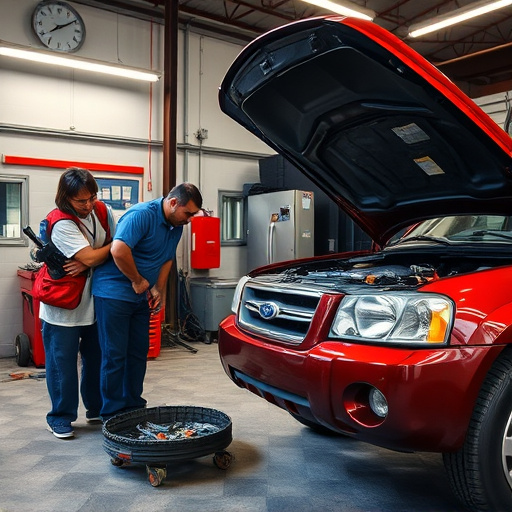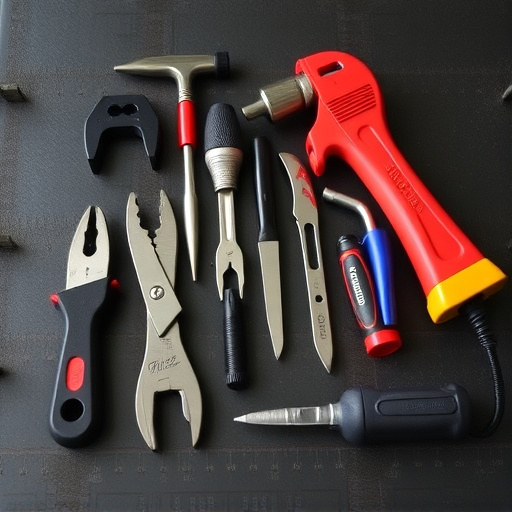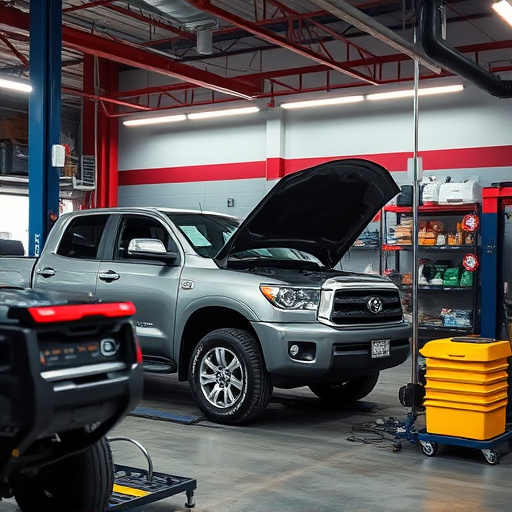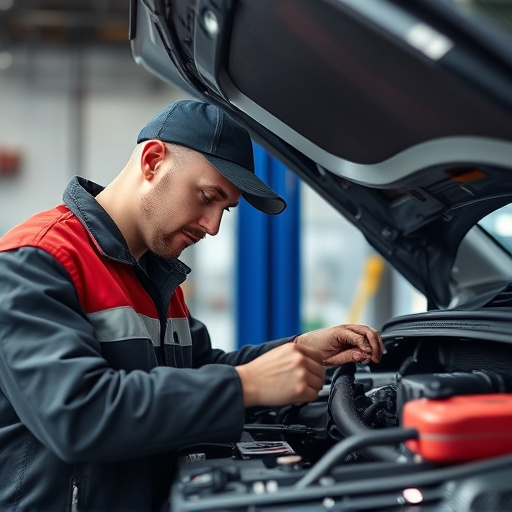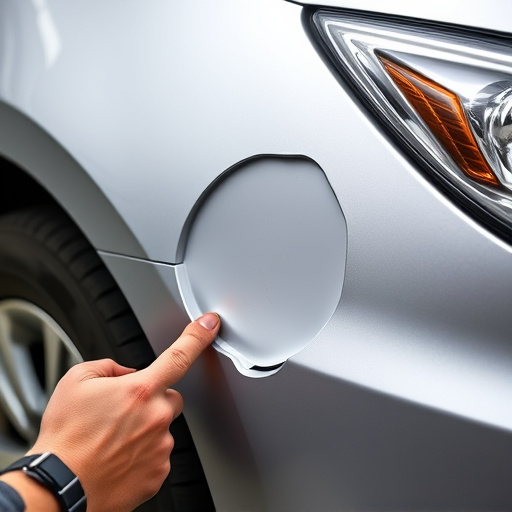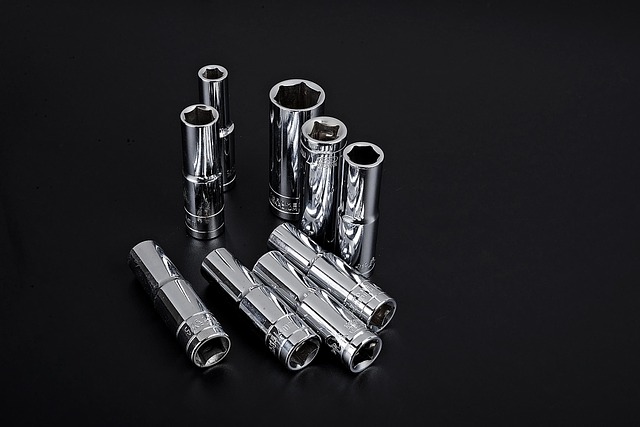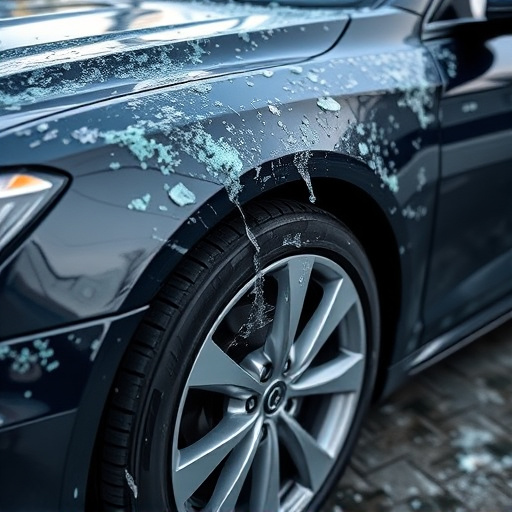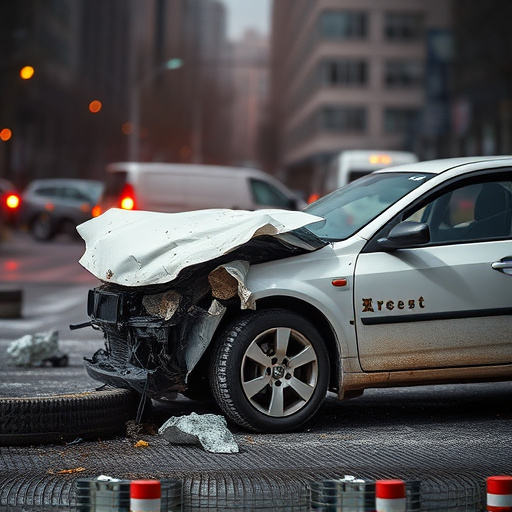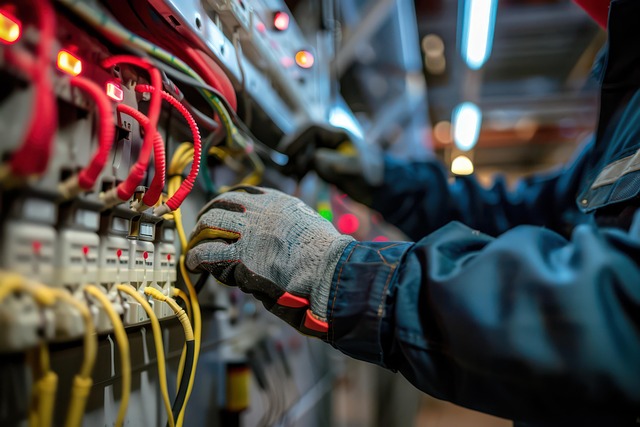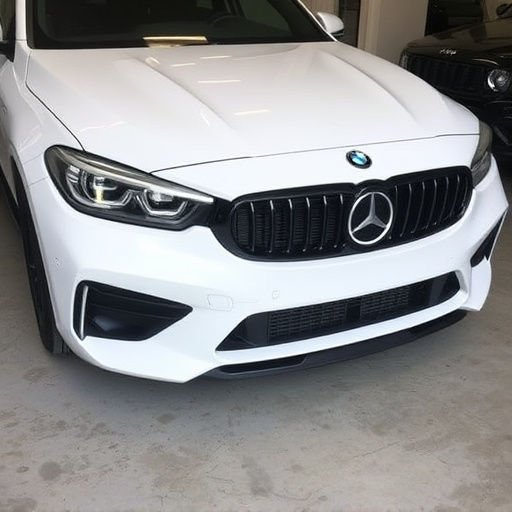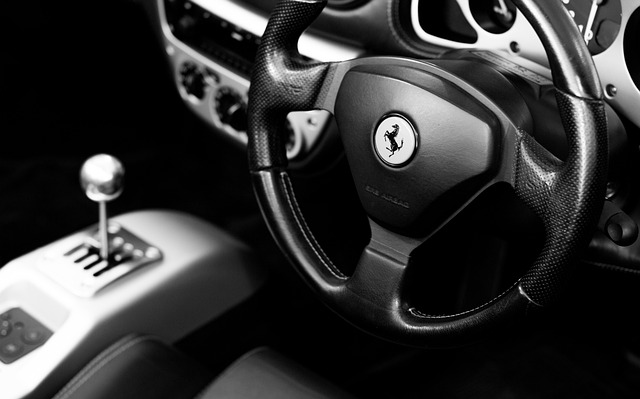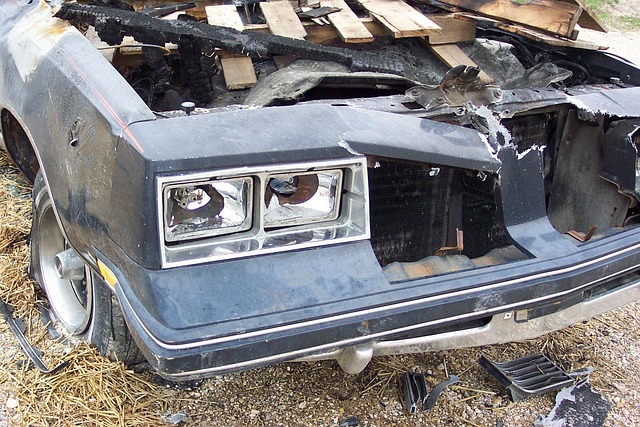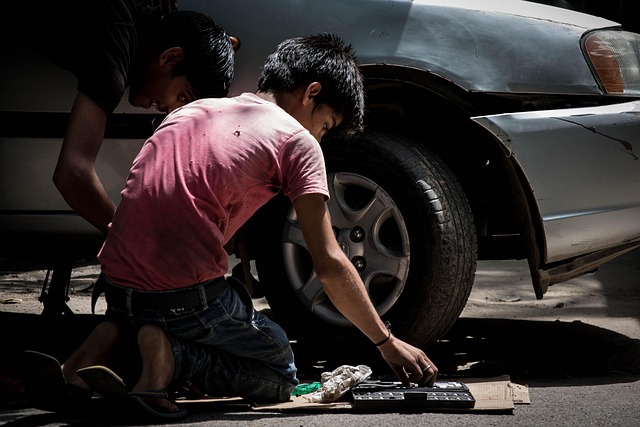Quarter panel dents vary in severity, from minor to structural issues. DIY kits are cost-saving but may cause further damage. Professional repair ensures high-quality work and preserves vehicle value. Full panel replacement is needed for deep dents, structural problems, corrosion, or complex body panels to ensure long-term safety and prevent deterioration.
“Discover when a quarter panel dent repair is sufficient or if full panel replacement is necessary. Quarter panel dents, though seemingly minor, can vary in severity. Understanding common causes and effects is key. We’ll explore DIY vs. professional techniques for repairs, helping you make informed decisions. Learn about signs indicating full panel replacement might be the best option for your vehicle’s safety and aesthetics. Optimize your maintenance strategy with this comprehensive guide to quarter panel dent repair.”
- Understanding Quarter Panel Dents: Common Causes and Effects
- Evaluating Repair Options: DIY vs. Professional Techniques
- When Full Panel Replacement Becomes Necessary: Signs and Considerations
Understanding Quarter Panel Dents: Common Causes and Effects
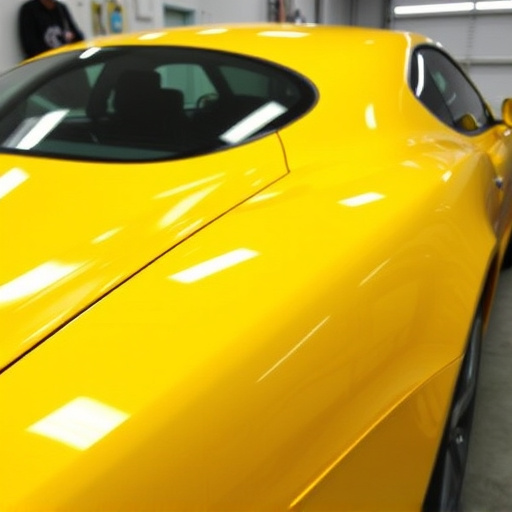
Quarter panel dents are a common issue for vehicles, often occurring due to minor fender benders, parking mishaps, or even airborne debris like rocks and branches. These dents can vary in size, from tiny dings that barely mar the surface to more significant depressions that can affect the panel’s structural integrity. While some quarter panel dents might be superficial and easily repairable through techniques like painting over or using specialized putty, others may require more intensive vehicle collision repair.
The effects of a quarter panel dent extend beyond just aesthetics. Deeper dents can lead to misaligned panels, compromising not only the car’s sleek appearance but also its overall structural stability. Over time, neglected dents might also weaken the metal, making it more susceptible to corrosion and further damage. Recognizing when a simple car paint service isn’t enough and considering full panel replacement is crucial for both the vehicle’s longevity and safety during driving.
Evaluating Repair Options: DIY vs. Professional Techniques

When considering quarter panel dent repair, deciding between DIY techniques and professional services is a crucial step. For minor dents and dings, DIY kits are available that allow car owners to attempt repairs themselves. These kits often include tools, putty, and detailed instructions, making them an attractive option for those looking to save costs. However, attempting such repairs without proper experience can lead to subpar results or further damage.
Professional auto repair shops offer a more reliable solution for quarter panel dent repair. Skilled technicians in these shops have the expertise and tools to handle complex dent removal processes safely and efficiently. They can assess the extent of damage, determine if other parts are affected, and provide expert advice tailored to your vehicle’s needs. While professional services may come at a higher cost, they ensure top-quality work, preserve the car’s original appearance, and often include warranties on repairs, giving peace of mind to car owners.
When Full Panel Replacement Becomes Necessary: Signs and Considerations
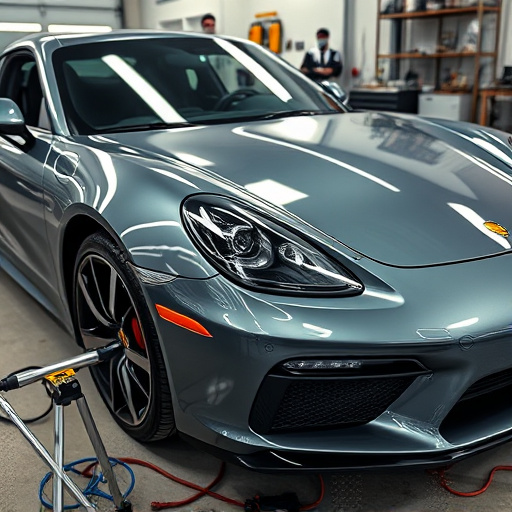
When a quarter panel dent becomes a concern, many owners question whether it’s time to opt for full panel replacement or if quarter panel dent repair is sufficient. While minor dents can often be fixed with professional techniques, there are instances where more extensive damage may require a complete overhaul. Here are some signs and considerations that suggest when full panel replacement is the best course of action:
One of the primary indicators is the severity of the damage. If the dent extends deep into the metal, involves multiple panels, or has caused underlying structural issues, it might be too complex for effective quarter panel dent repair. Corrosion or rust formation around the dent area can also indicate that the damage has compromised the overall integrity of the vehicle’s body. In such cases, to ensure long-term safety and prevent further deterioration, full panel replacement becomes necessary. Additionally, vehicles with intricate designs or custom body panels may require specialized automotive restoration techniques, making standard quarter panel dent repair ineffective and more costly in the long run.
When it comes to quarter panel dent repair, understanding your options is key. While minor dents can often be effectively fixed with DIY techniques or professional touch-up methods, there are instances where a full panel replacement becomes necessary. By being aware of common causes and assessing the extent of the damage, you can make informed decisions for your vehicle’s well-being. Remember, timely intervention and proper repair methods are crucial to preserving both the aesthetics and structural integrity of your car’s body panels.
